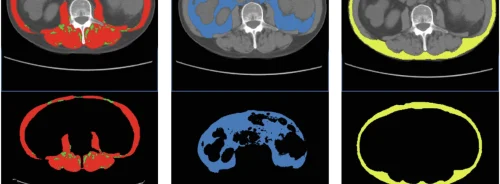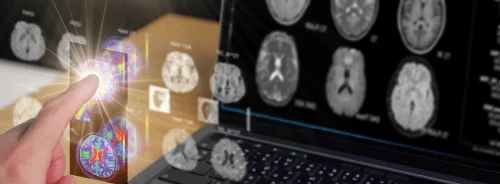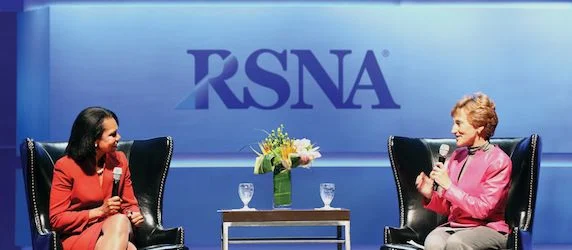As a former Secretary of State and National Security Adviser and a current Professor of Political Science and of Global Business and the Economy, Dr. Condoleeza Rice, Ph.D., brought a global perspective to the Radiological Society of North America annual meeting with her thoughts on mobilising human potential. It was fitting that in a country shaped by immigration, one of her key messages was that immigration is key to accessing the best talent pool. Dr. Rice noted three major current challenges – security, economic prosperity and governance across the world.
The theme of Dr. Rice’s address was that the countries that will handle those challenges best are not those with the greatest resources in the ground, but those that can mobilise human potential.
The 19th century belonged to countries that relied on resources for strength and wealth. The first half of the 20th century belonged to countries with more efficient manufacturing. The 21st century belongs to innovation, creativity and what human beings can invent, whether that’s the answers to how we protect the environment from climate change and still grow economically, dealing with chronic diseases, different ways to deliver education, technologies to reach out to people in remote parts of the world who just want a better life, it’s all going to come from innovation, creativity and human potential.
Dr. Rice asked what are the keys to human potential and unlocking it and what governments are best positioned to do so? Those peoples who do not have boundaries in terms of ethnicity, race, religion and nationality. Places that have a universalist creed, that it doesn’t matter where you came from, it matters where you are going. That belief that you can come from any place means immigration policies that make sense and not seeing immigrants as the enemy. 40% of new companies in Silicon Valley have a first generation immigrant as the founder, Dr. Rice noted.
Secondly, mobilising human potential has to include crossing the barriers of class. The key to that has been high quality education in high school and beyond.
Mobilising human potential means being open to immigrants, to the full pool of talent, with no barriers of class, so that the poorest child can get a high quality education, open to research and teaching and making sure that it is available across gender lines. “Countries that do not empower women will also find themselves left in the dust”, stated Dr. Rice. Human freedom wraps this all together. Without freedom, democratic institutions that protect freedom, creativity and innovation doesn’t happen. “Those who meet those challenges and fully realise human potential will dominate the next century and centuries to come”, concluded Rice.
Members of the Radiological Society of North America were given the opportunity to submit questions to Dr. Rice. On globalisation and medicine, Dr. Rice observed that globalisation is a fact, driven by the movement of people, increasingly by technology, so that what happens in the village no longer stays in the village. The ability to look outside boundaries is a major factor in transmission and creation of knowledge. Dr. Rice state that she admires the medical profession as a global community – in medical papers citations are from across the globe. An extraordinary aspect of medicine is translating knowledge into care, and this is where the boundaries of the state start to get in the way. She noted that the United States is a technology leader, and bears a lot of the costs of developing the technology - how long the U.S. can bear these costs is a major question. Globalisation of medical education provides advantages for quality of care particularly if we can do more for quality of care in developing countries by deploying trained physicians back into their countries where there is a shortage. There is too much of a shortage of good medical care in many developing countries.
Asked about the role of leadership and management training in the academic medical curriculum Dr. Rice stated that she saw a place for management training e.g. how to read a spreadsheet, how to construct a budget and so on. She observed that when she has students who say they want to be a leader, she tells them, “Let’s try knowing something first!” People learn to be leaders on the job and as leaders your job is to identify leadership skills in other people. If you try to lead on your own, you will be very far ahead of nothing.
Dr. Rice advocated research opportunities early on in training. It is incumbent on people who have made it to ensure you are bringing others along. Every one of us was mentored by somebody. That said, she observed, “Don’t come up to me and say will you be my mentor, that’s a turnoff.” You need to get to know someone first. Another conceit is that you need role models and mentors who look like you. If she had waited for black female soviet specialists as mentors, she wouldn’t have got far.
Dr. Rice was asked about STEM (Science, Technology, Engineering, Mathematics) Education and how to change this to better assist future researchers to reach their potential – especially women and minorities. Rice believes that the quality of K-12 education is a scandal. She stated that we need to have high expectations of teachers and of students. She has found that if she has low expectations of her students at Stanford University, they will live down to them. She noted that she is not a fan of the “every kid gets a soccer trophy” idea.
STEM education should start early, she felt. Learning cannot be rote, teaching to the test, critical thinking is needed. Also, girls need the message that it’s fine to be good in math and science. While a fan of STEM education she also believes in a broad curriculum. We underestimate the importance of the creative side of being able to read and write well, access to a musical instrument, drama and theatre. One of the great moments of her life was when she played a movement from a Schumann piano concerto from memory with a professional orchestra. Let’s not cheat kids of opportunities in the creative arts also.
Dr. Rice is pictured with Dr. Sarah Donaldson, President of the Radiological Society of North America.
Claire Pillar
Managing Editor, HealthManagement
Latest Articles
RSNA
As a former Secretary of State and National Security Adviser and a current Professor of Political Science and of Global Business and the Economy, Dr. Condo...










